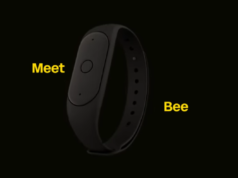
Note-taking app Evernote appears to have quickly reversed course after an update to its privacy policy appeared to assert the right to access any and all user data to its heart content. The policy change, due to take effect on Jan. 23, seemed to indicate that users could not opt out of a program that would allow select employees to view their data for the purposes of improving its machine learning algorithms.
The update created a firestorm of criticism on Twitter and in the media, with paying customers openly worrying if they had to shut down their accounts just to keep everything from their saved banks statements to old love letters private.
Understandable Confusion
The company has since backtracked on the update, with CEO Chris O´Neill going as far as to issue a clarification on the policy change. “We recently announced an update to Evernote’s privacy policy that we communicated poorly, and it resulted in some understandable confusion,” O´Neill wrote on the company’s blog today. “We’ve heard your concerns, and we apologize for any angst we may have caused.”
At issue is language included in Evernote’s FAQs regarding the change to the privacy policy: “If you would prefer to opt out of machine learning technologies on your content (including some which require some human review for oversight purposes), you can do so in your account settings, where it says, ‘Allow Evernote to use my data to improve my experience.'”
The language also stated: “If you do opt out, however, you may not be able to get the most out of your Evernote experience. And please note that you cannot opt out of employees looking at your content for other reasons stated in our Privacy Policy (under the section, ‘Does Evernote Share My Personal Information or Content?’).”
Yes, You Can Still Opt Out
While the FAQ seemed to leave little doubt that Evernote users could do nothing to prevent company employees from accessing their data, the company has since updated its FAQs to indicate that users can, in fact, opt out of the research program.
“We believe we can make our users even more productive with technologies such as machine learning that will allow you to automate functions you now have to do manually, like creating to-do lists or putting together travel itineraries,” O´Neill said. “Machine learning might sound like science fiction where computers make their own decisions. In reality, machines still need a human to check on them. To get there, Evernote data scientists need to do spot checks as they develop the technology. We’ll introduce this change on January 23, 2017, but you control whether or not your data is used for this purpose at any time.”
Nevertheless, the company continued to assert its right to access user content in certain circumstances, regardless of whether the user chooses to participate in the machine learning program. In the updated version of the privacy policy, Evernote more explicitly limited those circumstances to cases where it believes its terms and conditions have been violated and required confirmation; where it needs to access content for customer service purposes; investigation into the use of an account for malicious purposes; and to comply with warrants and other legal orders.







